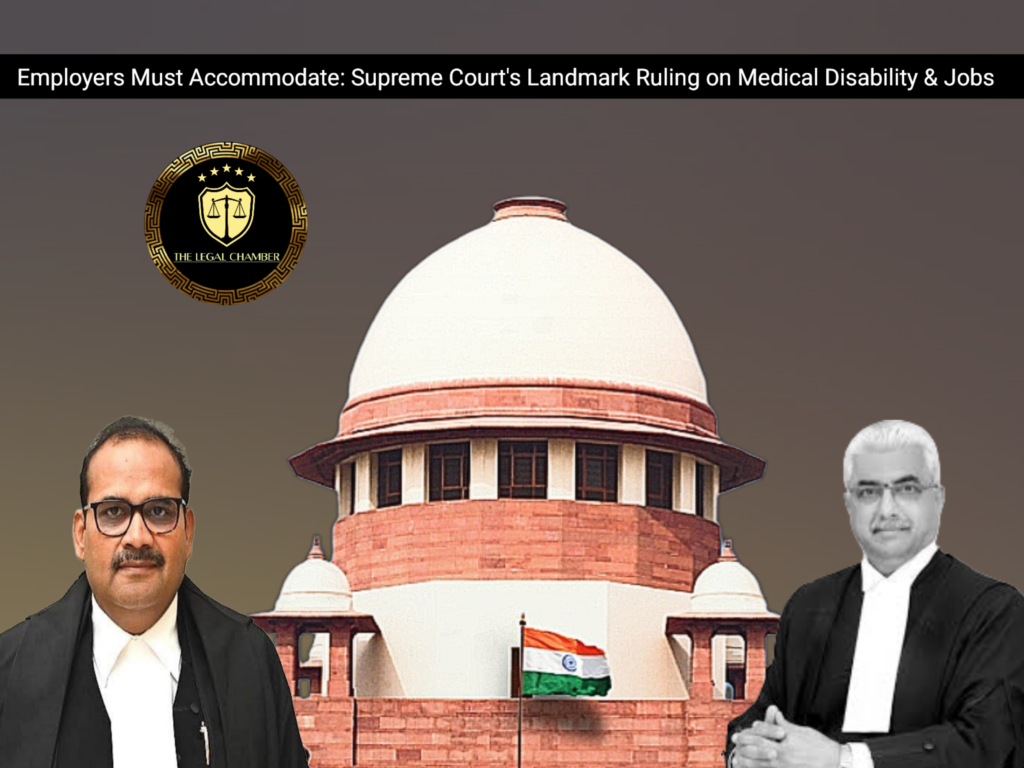
This Supreme Court held that a binding Memorandum of Settlement under the Industrial Disputes Act, 1947, which specifically provided alternate employment for colour-blind drivers, created an enforceable statutory obligation on the employer. The subsequent settlement and internal circulars could not override this specific contractual right, and the Corporation’s failure to explore redeployment violated principles of natural justice and statutory compliance.
Facts Of The Case:
The appellant was appointed as a driver by the Andhra Pradesh State Road Transport Corporation (APSRTC) in 2014. During a subsequent periodic medical examination, he was found to be colour blind and declared medically unfit to continue in his role as a driver. Following this, the appellant sought alternate employment within the corporation, a request that was ultimately rejected. The corporation, citing its internal circulars, passed an order in January 2016 retiring him from service with effect from the previous month and offering him an additional monetary benefit instead of an alternative post. The appellant challenged this termination in the High Court, contending that his condition amounted to a disability acquired during service. He relied on a binding Memorandum of Settlement from 1979 that specifically guaranteed alternate employment to colour-blind drivers. While a Single Judge allowed his petition, a Division Bench set aside that order, leading the appellant to appeal to the Supreme Court.
Procedural History:
The appellant, declared medically unfit as a driver due to colour blindness, was retired from service by the Telangana State Road Transport Corporation (TSRTC). He challenged this order in the Andhra Pradesh & Telangana High Court by filing Writ Petition No. 5164 of 2016. A Single Judge allowed the writ petition, directing the corporation to provide him alternate employment. The TSRTC then filed Writ Appeal No. 1343 of 2017. The Division Bench of the High Court allowed the appeal, set aside the Single Judge’s order, and permitted the appellant to make a representation to the corporation. Aggrieved by this reversal, the appellant filed a Special Leave Petition (Civil) No. 36278 of 2017 in the Supreme Court, which granted leave and culminated in the present civil appeal.
READ ALSO :Can’t Claim Juvenile Benefit Based on Weak Evidence: Supreme Court’s Landmark Ruling
Court Observation:
The Court observed that the Memorandum of Settlement dated 17.12.1979, executed under the Industrial Disputes Act, was a binding statutory contract. Its Clause 14 specifically and mandatorily provided for alternate employment for colour-blind drivers with protection of pay and service benefits. This specific obligation was not nullified by a subsequent general settlement from 1986. The Corporation’s failure to even attempt to identify a suitable alternative post before terminating the appellant’s service violated this binding settlement, the principles of natural justice, and the constitutional duty of reasonable accommodation. The High Court erred in relying on a precedent concerning the Disabilities Act, as the appellant’s enforceable right stemmed independently from the statutory industrial settlement.
Final Decision & Judgement:
The Supreme Court allowed the appeal and set aside the judgment of the High Court. The Respondent-Corporation was directed to appoint the Appellant to a suitable alternative post on the same pay grade he held at the time of his termination, to be completed within eight weeks. The Court ruled that the intervening period from his wrongful retirement until reinstatement would be treated as continuous service for all purposes. Furthermore, the Appellant was held to be entitled to 25% of the arrears of his salary, allowances, and other benefits for that period.
Case Details:
Case Title: Ch. Joseph vs. The Telangana State Road Transport Corporation & Anr. Civil Appeal No: Civil Appeal No(s). of 2025 (@ SLP (C) No. 36278 of 2017) Date of Judgement: August 01, 2025 Judges/Justice Name: J.K. Maheshwari and Aravind Kumar
Download The Judgement Here